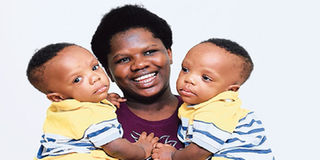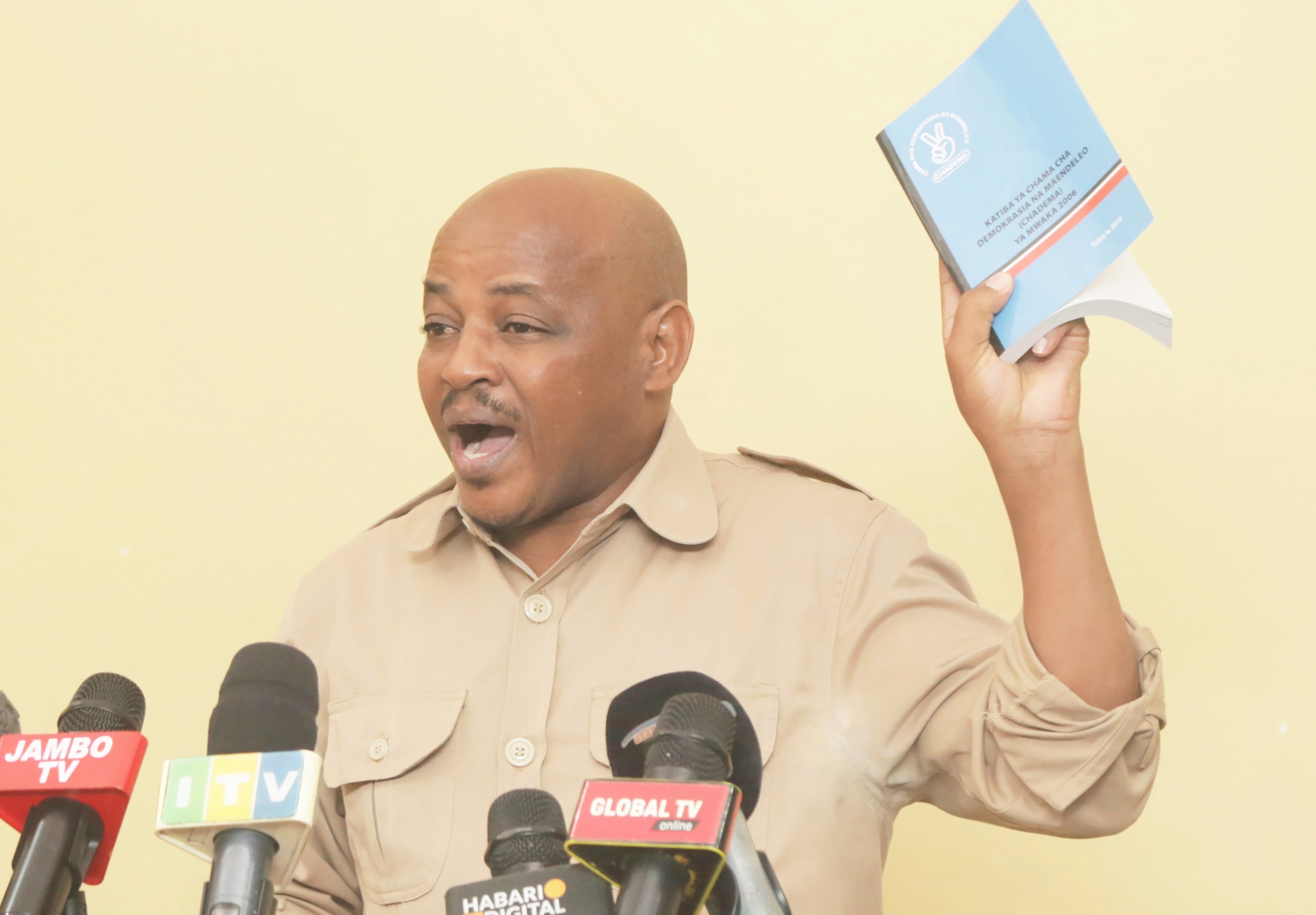Miracle twins see life at the end of a tunnel

The twins finally saw each other face to face for the first time after a gruelling operation that took 12 hours in India.PHOTO FILE
What you need to know:
- The once conjoined twins finally arrive home today as healthy babies after an exhausting, world’s medical record operation in India, which took 12-hour on December 17, last year.
Dar es Salaam. Ericana and Eliudi, the one year-old conjoined male twins from Rural Dodoma, have finally seen each other face to face. Doctors at India’s Apollo Hospital announced yesterday that the babies, who were literally joined at the hip, have fully recovered and are free to come home.
The “miracle” twins arrive home today as healthy individuals after a successful operation that was a first in the world for their rare type of conjoined babies.
The conjoined twins, who were separated last December, will be received by enthusiastic family members and government officials at Julius Nyerere International Airport this afternoon before proceeding to their home in Kasumulu in Dodoma.
The twins and their mother, Grace, left Chennai last night shortly after medical personnel at the Apollo Vanagaram Hospital threw them a first birthday party to toast their survival.
Mother and sons left Tanzania nine months ago with slim hope that they would survive the complicated surgery of twins joined at the tail end of their spines, scientifically described as Pygopagus twins.
The government sent them to India, where doctors were to make their first ever attempt at separating Pygopagus twins, who account for just 17 per cent of the conjoined twin population in the world.
In the end, when they were put under the knife as 20 Apollo surgeons and other medical experts took some 18 hours to separate them in a case that was televised live and became a milestone in the medical world.
The surgery involved separating the spine, anus, rectum, penis and urethra. The babies had a single anus, urinary passage and rectum. Their penises were fused in what was doctors said was unlike anything they had seen before. About Sh100 million was spent on the surgery.
Mr Senu Sam, the manager of International Patients Services at Apollo hospital, told The Citizen the hospital hosted a gala celebration for the twins yesterday.
He added: “The twins saw each other for the first time only three weeks after surgery. “It was great to see the twins explore each other. Eluidi took Ericana’s fingers and playfully lapped them. Both the twins are boisterous and immensely curious about the environment.”
Dr Venkata Sripathi, the Senior Consultant Paediatric Urologist who led the operation, said: “While they are returning home this evening (yesterday evening), we look forward to having them back six months from now for surgical procedures on the penis and for colostomy closure.”
The Indian doctors said the minister for Health and Social Welfare, Dr Seif Rashid, was personally following up the kid’s recovery. Both babies have been stable and show signs of a promising and speedy recovery and can now look forward to leading normal lives as two separate individuals back home.
“We see children being born every day at our facilities but to see the same children being born again is a miracle,” said Dr Prathap Reddy, Chairman, Apollo Group of Hospitals. He described the case as unique and challenging.
“To know that doctors played an instrumental role in shaping not just their lives but their future is a great privilege,” Dr Reddy added. “We are constantly scaling our clinical expertise and grabbing opportunities such as these that demonstrate our prowess as a global destination for affordable yet world class healthcare.”
The announcement ends the uncertainty that has clouded the recovery of the conjoined twins after they underwent an exhausting 12-hour operation that the medical world acclaimed as one of the world’s record surgeries on December 17.
Soon after the operation, the doctors announced that the babies would be discharged in January. But there was no word from Apollo hospital when the time arrived—raising fears about the future of the twins.
The surgery, estimated to have cost an estimated Sh100 million, means the twins will be able to look each other in the eye for the first time since birth. The Tanzanian government, according to the hospital, has contributed a major part of the cost and the hospital is prepared to chip in with the rest.
The twins were wheeled into the operation theatre of Apollo Specialty Hospital, Vanagaram, at 7am on. “We began the process by inserting catheters into the bladders to monitor urine output, following which we made the incision for the surgery,” Dr Sripathi said in December.
During diagnosis, doctors established that the tail end of the twins was fused at the spine. Of the 30 sets of such twins reported across the world, 26 were female and only four were male.




